Bangkok food sellers eye return to the streets as military government faces election test
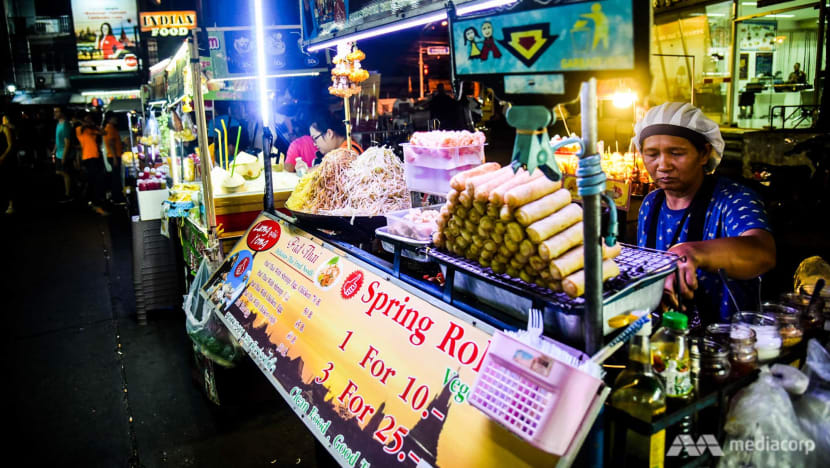
Thousands of Bangkok's street vendors have been affected by the military government's enforced restrictions. (Photo: Jack Board)
BANGKOK: When Thailand’s military took over the country in a bloodless coup in May 2014, it promised to return peace and order to the divided streets.
Part of that effort was the swift cleanup of those very streets in Bangkok, first of protesters and then the city’s famous food sellers and market vendors.
Arguably the world’s street food capital found one of its drawcards chased away into the shadows. More than 6,000 vendors were affected by the clampdown, many of them forced to close their operations, change their business or relocate.
It was a show of strength from the junta, a swift operation with little consultation. Thailand’s image would be forged into a clean one, despite the murky conditions around the nation’s rule.
A crackdown on the messy sidewalks became symbolic of how the junta would lead the nation for half a decade, before finally scheduling a democratic election to be scheduled for Mar 24.
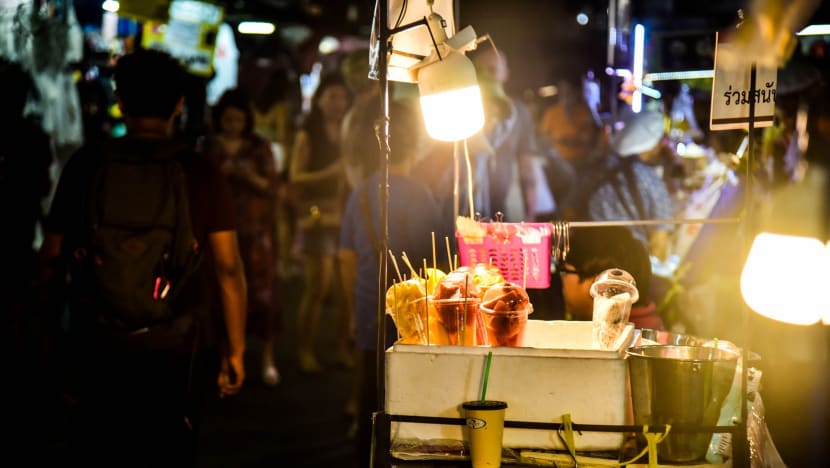
“For the past five years, the informal sector has been hit hard by the draconian measures of the junta, under the rhetoric of bringing order back to the city,” said political analyst, Assistant Professor Pitch Pongsawat from Chulalongkorn University.
Blame for the measures has been attributed to the Bangkok Metropolitan Administration, which has authority over urban planning, roads, waste management and the environment.
The city governor though - Pol Gen Aswin Kwanmuang - was handpicked by the junta, and had a long prior track record of enforcing evictions through the sidewalk-patrolling police force he controlled.
Street sellers are typically Bangkok’s urban poor, cultural stalwarts of the city but unheard voices when decisions are being made.
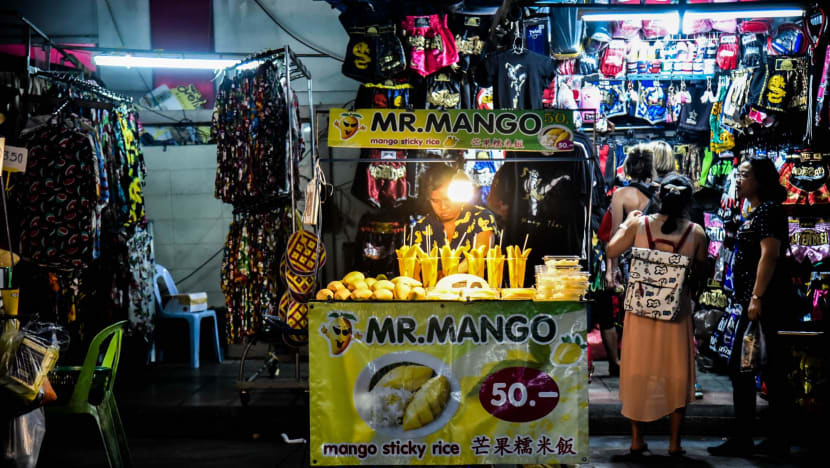
Raywat Chobtham was one of those impacted by the military clean-up. He sells small souvenirs in a busy tourist area in the city, but today has to work below the radar of authorities.
“This spot was cleaned up by the government already but there’s no place to sell so I came back to sell at this spot, but I lie low,” he said.
He says he has worked the same area for more than 30 years and witnessed multiple governments attempt to enforce tougher street laws. None were effective, until this regime.
“This government came to power without getting elected, so they did not need to care about their popularity or wanted votes from people. This is why they could enforce the law effectively.”
But that has since changed.
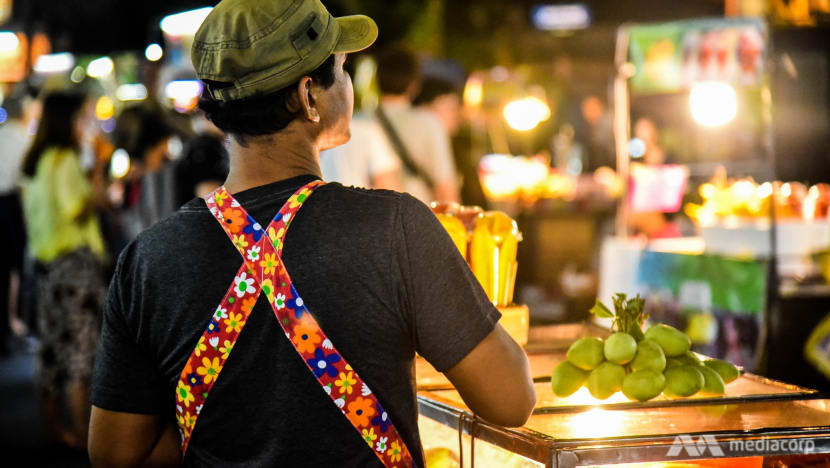
READ: A battle between three forces: Thailand’s election explained
In recent weeks, the military has been campaigning to maintain its power, under the banner of the pro-regime Palang Pracharath Party (PPRP), newly formed as the junta faced its eleventh hour as coup rulers.
And it means a clenched fist becomes an open palm.
PPRP says it has the welfare of the hawkers at the heart of a more nuanced policy to give them more designated street space in the form of walking streets in 50 districts throughout Bangkok, which it would implement if elected as Thailand’s ruling party.
It is part of a more populist platform the party has embraced, including a national minimum wage, improved crop prices and starting salaries for graduates.
The promises have been met with wariness from street sellers.
Bangkok’s iconic Khaosan Road was another area heavily targeted for cleansing and rejuvenation under the junta. The representative of its vendors is Yada Pornpetchrumpa, who has been actively resisting changes in the area.
With most political parties involved in the 2019 fray keen to communicate their street vendor policies, she is cautious about what the election might bring for them.
“My friends and colleagues are hopeful because political parties promote that they would bring the vendors and hawkers back. Even Palang Pracharat promises the same thing,” she said.
“I told them to think carefully because they killed the street vending and hawking but they promise to bring it back because of election is coming. Isn’t that going back to their words?”
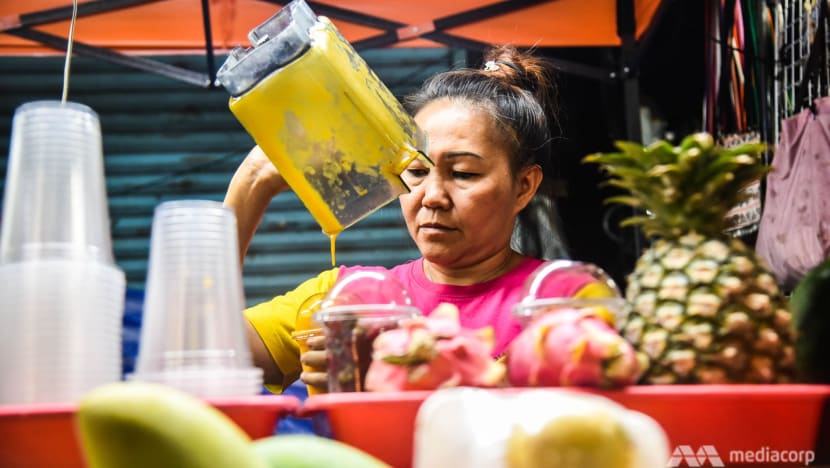
‘THEY CLEAN UP. THEY DON’T CARE’
There is a softer facade to Palang Pracharat, compared with its military forerunners. It can be seen from the manner in which prime ministerial candidate Prayut Chan-ocha appears and speaks in public, to the types of candidates they have selected to stand for office.
One of the party’s candidates in Bangkok, Thanikarn Pornpongsaroj, is a fresh-faced example. She is a young and successful businesswoman with ideas for women empowerment and national education improvement.
“Before, the people in politics are very old and they are very strange. I don’t know why they don’t smile. I want to change this mindset,” she said.
“If I make it, I’ll do it my way and make sure that this party doesn’t use me as a doll.”
The 38-year-old has a diverse background, including marketing and PR, an area she admits the current military government has struggled with.
“The bad thing about this government is a lack of communication,” she said, extending that critique to the way street vendors were treated. "This government, they clean up. They don't care."
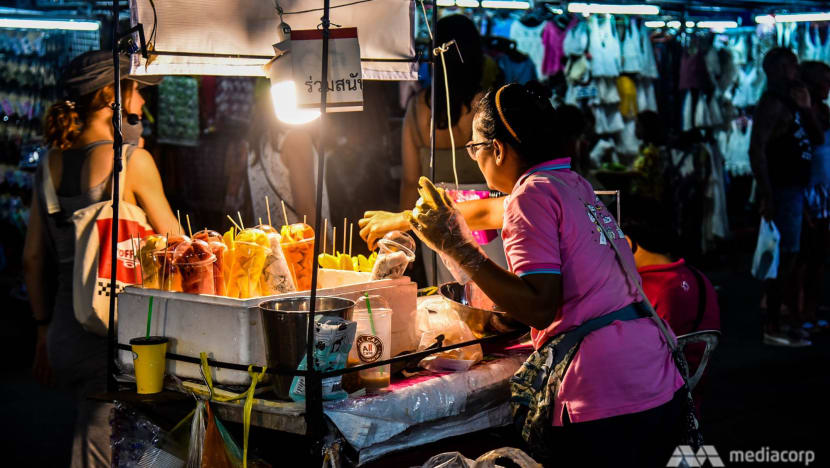
READ: Meet the ‘new’ Thaksin and Yingluck: Thai election candidates change names to emulate exiled Shinawatras
During this election campaign, she says there has been emphasis on selling a positive message and helping those affected understand the benefits of the regime’s actions.
“We have a lot of street food and it’s good for the culture and the tourists. But we need the country to look beautiful for the image and for the tourists.”
The change in tone and style by Palang Pracharat is a tactic, Dr Pitch argues.
“I’m not sure they actually want to rebrand themselves. They just want to stay in power,” he said.
“Because if they really wanted to they would have been re-branding themselves a long time ago.”
He says PPRP has opened the gateway for other parties to also embrace populist policies, the type of platform that Thaksin Shinawatra had found unrivalled success with in previous elections.
He believes that has left a more simple choice to be made in the minds of voters - an ideological one. “To keep Prayut in power or kick Prayut out, that’s the basic decision now,” he said.
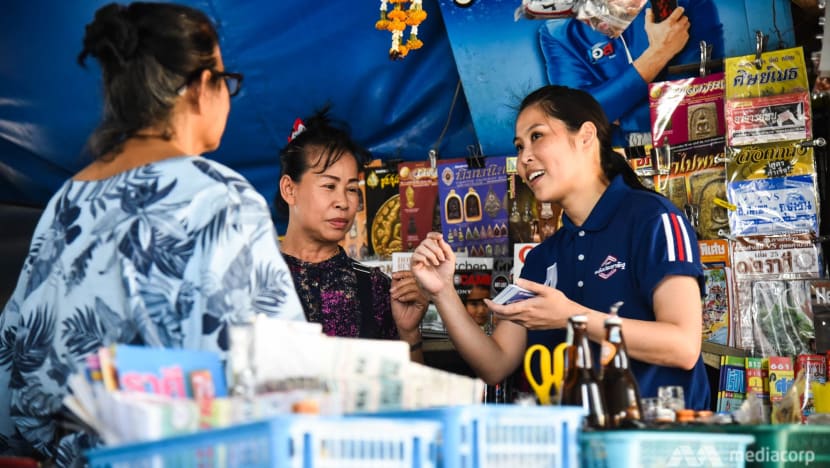
Prayut is PPRP’s sole prime ministerial candidate, and he has walked a fine line throughout this election campaign, not officially involved but present at many of his party’s electioneering events.
He remains popular among certain demographics in Thailand, and has maintained an image untarnished by corruption. Yet even his party’s candidates, like Thanikarn, are reserved in their praise for the general.
“Maybe he’s not good but he’s better than others. I know that better is not even good but I think he’s the best choice we have right now,” she said.
Now involved in the democratic process for the first time, she admits that being under military rule for five years was not a concern for her.
“Actually I don’t care because I’m not poor. But it’s not good for our country to have this kind of image,” she said.
For the thousands of street vendors who are poor, this has been a turbulent time, of loss and displacement.
“They came in and made the country in peace. It’s true,” said Raywat Chobtham.
“But when it comes to restoring order ... it does not go well with people's way of living. Street vending and hawking are part of Thai tradition. They need to listen to people.”
He and many in his situation will have the chance to make their voices heard at the ballot box on Sunday.
(Additional reporting by Ryn Jirenuwat)












